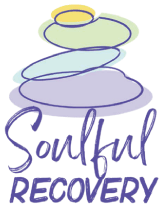Understanding Evidence-Based Therapy in the IOP Setting
Evidence-based therapy in intensive outpatient programs (IOPs) represents the gold standard for addiction treatment, combining scientifically validated therapeutic approaches with the flexibility and practicality of outpatient care. Evidence-based practices are interventions that have been rigorously tested through controlled research studies and have demonstrated measurable effectiveness in treating specific conditions. In the context of intensive outpatient addiction treatment, these therapies include cognitive-behavioral therapy (CBT), motivational interviewing (MI), dialectical behavior therapy (DBT), contingency management, and trauma-informed care approaches. SAMHSA’s Treatment Improvement Protocol 47 specifically outlines how intensive outpatient treatment helps clinicians design and implement programs using evidence-based approaches including 12-step programs, cognitive behavioral therapy, and therapeutic communities. The integration of these evidence-based approaches within the IOP structure creates a powerful treatment modality that addresses the complex psychological, behavioral, and social aspects of addiction while allowing individuals to maintain their daily responsibilities and community connections.
The Effectiveness and Outcomes of IOP Treatment
Research consistently demonstrates that intensive outpatient programs utilizing evidence-based therapies achieve outcomes comparable to more intensive inpatient treatment settings while offering significant advantages in terms of cost-effectiveness and quality of life. A comprehensive review published in Psychiatric Services found that intensive outpatient programs have emerged as a critical facet of 21st-century treatment of substance use disorders, serving up to 12% of patients receiving specialty addiction treatment, with outcomes comparable to inpatient treatment. This data underscores the remarkable effectiveness of evidence-based IOPs in achieving sustained recovery outcomes. The success of these programs stems from their ability to provide intensive therapeutic intervention while allowing individuals to practice newly learned coping skills in real-world environments. Unlike inpatient treatment, which occurs in a controlled setting, IOPs enable participants to immediately apply evidence-based strategies to actual life situations, creating more authentic and transferable learning experiences that contribute to long-term recovery success.
Comprehensive Treatment Approaches for Complex Conditions
One of the most significant advantages of evidence-based therapy in intensive outpatient settings is its capacity to address co-occurring mental health conditions alongside substance use disorders. Many individuals seeking addiction treatment also struggle with depression, anxiety, PTSD, or other mental health challenges that require specialized therapeutic interventions. Evidence-based IOPs are uniquely positioned to provide integrated treatment that addresses both conditions simultaneously using scientifically validated approaches. Research published in ScienceDirect demonstrated that intensive outpatient programs showed significant reductions in substance use and binge drinking as well as PTSD and depression symptoms, with findings suggesting these effects may be consistent across in-person, hybrid, and telehealth treatment modalities. This integrated approach is crucial because untreated mental health conditions often serve as triggers for substance use, and addressing both conditions concurrently significantly improves treatment outcomes and reduces the likelihood of relapse.
Flexibility and Accessibility in Modern Treatment Delivery
The integration of evidence-based therapies within intensive outpatient programs offers unprecedented flexibility in treatment delivery, making effective addiction treatment accessible to individuals who might otherwise be unable to participate in residential programs. IOPs typically require 9-20 hours of treatment per week, allowing participants to maintain employment, fulfill family responsibilities, and remain connected to their support systems while receiving intensive therapeutic intervention. This flexibility is particularly important for individuals with work obligations, childcare responsibilities, or financial constraints that make residential treatment impractical. Recent developments in telehealth and virtual IOP delivery have further expanded accessibility, with research indicating that virtual intensive outpatient services demonstrate effectiveness comparable to traditional in-person treatment. This technological advancement has been particularly valuable in reaching underserved populations and individuals in rural areas where access to specialized addiction treatment may be limited.
Cost-Effectiveness and Healthcare System Benefits
Evidence-based intensive outpatient programs represent a highly cost-effective approach to addiction treatment that delivers significant value to both individuals and healthcare systems. SAMHSA research indicates that substance abuse intensive outpatient programs are direct services for people with substance use disorders or co-occurring mental and substance use disorders who do not require medical detoxification or 24-hour supervision, making them an essential component of the treatment continuum. The cost-effectiveness of IOPs stems from their ability to provide intensive therapeutic intervention without the expenses associated with residential care, including housing, meals, and 24-hour staffing. This economic advantage makes high-quality addiction treatment accessible to a broader population while reducing the overall burden on healthcare systems. Additionally, the effectiveness of evidence-based IOPs in preventing relapse and reducing emergency department visits, hospitalizations, and legal system involvement creates long-term cost savings that extend far beyond the initial treatment investment.
Building Sustainable Recovery Through Community Integration
Perhaps the most compelling aspect of evidence-based therapy in intensive outpatient settings is its focus on building sustainable recovery skills within the context of participants’ actual living environments. Unlike residential treatment programs that necessarily remove individuals from their daily environments, IOPs allow participants to practice evidence-based coping strategies, communication skills, and relapse prevention techniques in the real-world settings where they will need to apply these skills long-term. This community-based approach to recovery creates opportunities for participants to build healthy relationships, establish new routines, and develop support networks that will continue to serve them after formal treatment concludes. The evidence-based therapies utilized in IOPs specifically target the cognitive, behavioral, and emotional patterns that contribute to addictive behaviors, providing individuals with practical tools for managing triggers, handling stress, and making healthy decisions in their actual living and working environments.
Long-Term Recovery and Continuum of Care
Evidence-based intensive outpatient programs serve as a crucial bridge in the continuum of addiction care, often following more intensive inpatient treatment or serving as a step-down from residential programs while providing ongoing support that can extend for months or even years as needed. The flexibility of IOPs allows for graduated levels of intensity, beginning with frequent sessions during early recovery and gradually reducing frequency as individuals demonstrate stability and skill development. This graduated approach recognizes that recovery is an ongoing process that requires sustained support and intervention. The recommended minimum duration for intensive outpatient treatment is often cited as 90 days, but evidence-based programs can be extended or modified based on individual needs and progress. This adaptability ensures that individuals receive the appropriate level of support throughout different phases of their recovery journey, maximizing the likelihood of sustained sobriety and improved quality of life.
Concluding Thoughts
The importance of evidence-based therapy in intensive outpatient addiction treatment cannot be overstated. These programs represent the optimal combination of scientific rigor, practical flexibility, and cost-effectiveness in addiction care. By utilizing therapeutic approaches that have been proven effective through research while maintaining the community-based advantages of outpatient treatment, evidence-based IOPs provide individuals with the tools, support, and environment necessary for achieving lasting recovery while maintaining their connections to family, work, and community life.

